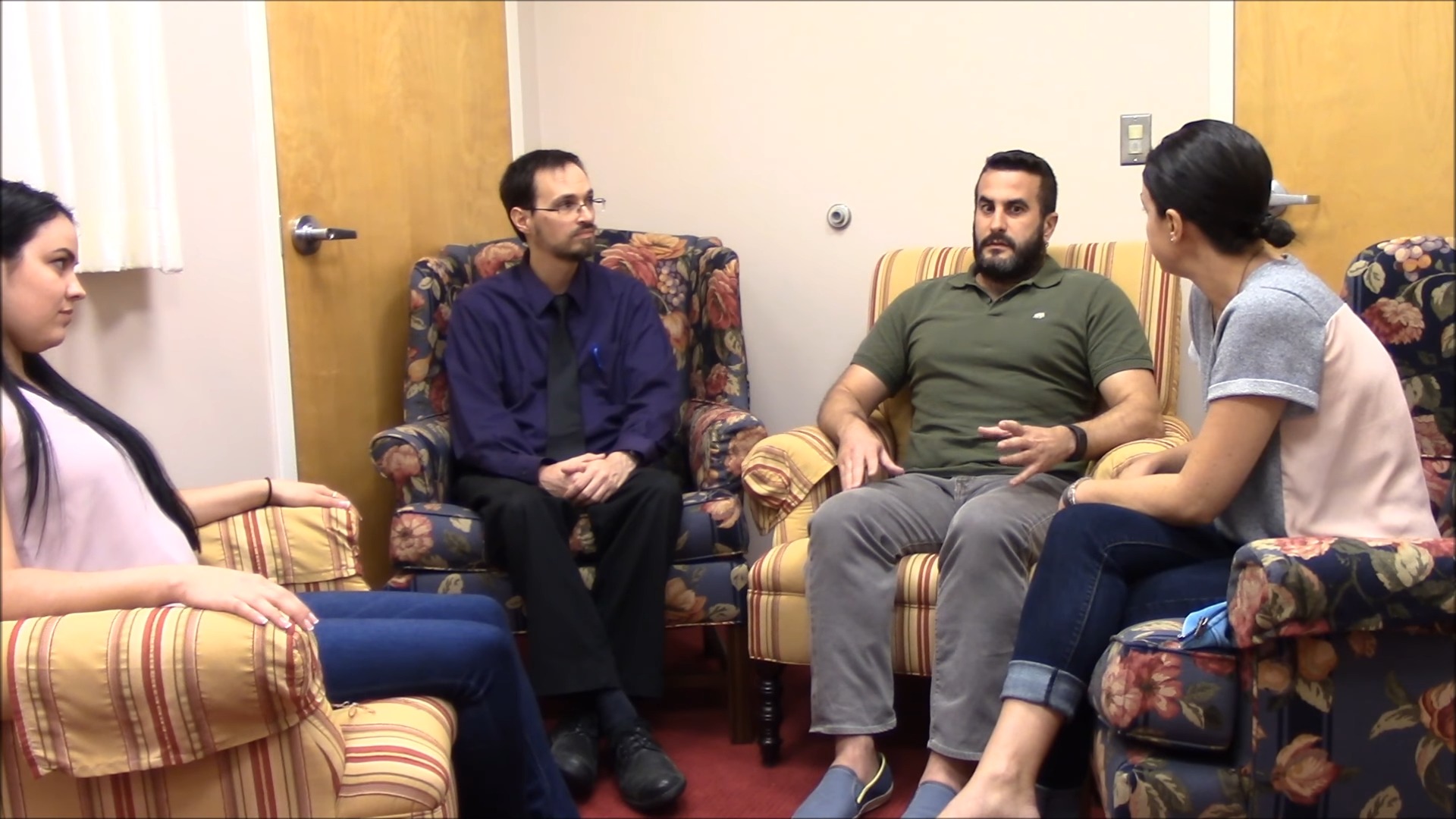Bipolar disorder presents unique challenges, especially when it comes to parenting an adult child living with this condition. Unlike parenting younger children, where guidance and decision-making often fall squarely on the parents, dealing with an adult child requires a different approach.
This article focuses on practical and compassionate strategies for parents navigating the complex waters of bipolar disorder in their adult children.
What is Bipolar Disorder?

Bipolar disorder is a mental health condition characterized by extreme mood swings that include emotional highs (mania or hypomania) and lows (depression). When this condition affects an adult child, it not only impacts their life but also significantly affects family dynamics.
Living with an adult child who has bipolar disorder requires patience and empathy. Parents often face challenges in understanding the complexities of the disorder and distinguishing between typical behaviors and those related to bipolar disorder.
They might also struggle with feelings of guilt, frustration, and helplessness. Ather Muneer gave us a simple definition of this condition:
“Bipolar disorder is characterized by exacerbations of opposite mood polarity, ranging from manic to major depressive episodes.”
Also, the study provided by Ljubic, N., Ueberberg, B., Grunze, H. states that:
“Some patients develop hypomanic, manic or mixed episodes after the age of 50, without any previous episodes having been observed. However, they had suffered from at least one depressive episode before the age of 50.”
Before we continue to share tips on coping with this struggling condition. Even though it is considered a permanent condition, experts from the Mental Health America Association say this:
“The good news is that there are many treatments and tools that can help you live a good life with bipolar disorder. Lifestyle changes, support groups, medications, therapy, and learning more about bipolar disorder can all help.”
And now I will share some parenting tips that will make it easier for both you and your child while having to struggle with this disorder.
1. Recognize Their Feelings

Understanding your adult child with bipolar disorder begins with recognizing and validating their experiences. Bipolar disorder is not just about mood swings; it’s a complex condition that deeply affects a person’s thoughts, feelings, and behaviors.
As a parent, it’s crucial to acknowledge that your child’s feelings and experiences are real and significant, even if they are difficult to comprehend. This validation creates a foundation of trust and empathy.
Listening actively to your child, without judgment or interruption, shows that you value their perspective. Avoid dismissing or minimizing their feelings, even if they seem irrational or exaggerated.
Remember, what they’re experiencing is very real to them. By acknowledging their struggles, you are not just hearing them; you are understanding them.
This approach fosters a supportive environment where your child feels safe to express themselves, which is vital for their emotional well-being. Moreover, validation doesn’t mean you have to agree with everything they say or do.
It’s about respecting their feelings and experiences as part of their condition. This respect can make a significant difference in how they cope with their disorder and interact with you as a parent.
2. Open Communication

Effective communication is key in any relationship, but it becomes even more crucial when dealing with an adult child who has bipolar disorder. Strive to create a dialogue that is open, honest, and, most importantly, non-judgmental.
This means listening to your child and expressing your thoughts and concerns in a way that is respectful and free from bias or blame. When communicating, it’s important to be patient.
Sometimes, your child might not be in a state to articulate their thoughts or feelings clearly. Give them the time and space they need.
Encourage them to share their feelings and experiences, but don’t pressure them. It’s also essential to be mindful of your language and tone.
Avoid using stigmatizing words or phrases that could make your child feel ashamed or misunderstood. Remember, communication is a two-way street. It’s not just about talking; it’s equally about listening.
Let your child know that you are there to listen and support them, without jumping to conclusions or offering unsolicited advice. This kind of open and non-judgmental communication builds a strong foundation for trust and understanding.
Taking such an approach is especially important if you are trying to convince the child to get an appointment to consult with a professional.
3. Consistent Treatment
Encouraging your adult child to stay consistent with their treatment and medication is crucial in managing bipolar disorder. Consistency in treatment helps in stabilizing mood swings and maintaining overall mental health.
As a parent, you can play a supportive role by gently reminding them about their medication and appointments with healthcare professionals. Understand that treatment for bipolar disorder often involves a combination of medication and therapy.
It’s important to encourage your child to adhere to their prescribed medication schedule, even when they feel better, as abrupt changes can lead to relapses or mood episodes. Additionally, therapy sessions provide valuable coping strategies and emotional support.
It’s also helpful to stay informed about the medications and their potential side effects. This knowledge enables you to be more understanding and empathetic towards any changes in their behavior or mood that might be related to medication.
However, avoid pressuring your child or making them feel guilty about their treatment; instead, offer encouragement and understanding. You should also be aware of additional factors that could cause more or less frequent changes in behaviors, such as Seasonal Affective Disorder.
4. Establish and Maintain Healthy Boundaries
Setting healthy boundaries is essential for both you and your adult child. Boundaries help define what is acceptable and what is not, creating a safe and respectful environment.
It’s important to establish boundaries regarding personal space, emotional needs, and behaviors. Discuss with your child what boundaries are necessary for both of you.
This might include setting limits on how and when they can seek support from you or defining acceptable behaviors in the household. These boundaries must be consistent and clear, but also flexible enough to accommodate the changing nature of bipolar disorder.
Respect their independence and autonomy. Remember, they are adults, and imposing too many restrictions or being overly protective can be counterproductive.
Boundaries are not about control; they’re about creating a balanced relationship that respects both your needs and theirs.
5. Offer Emotional Support

Providing emotional support and understanding is perhaps one of the most crucial aspects of parenting an adult child with bipolar disorder. Your child needs to feel loved and supported, especially during times of distress.
Offer a shoulder to lean on, a listening ear, and a comforting presence. Let them know that they are not alone in their struggles.
Understanding doesn’t mean you have to have all the answers. Sometimes, the best support you can offer is simply being there, acknowledging their feelings, and showing that you care.
It’s also important to celebrate their achievements, no matter how small they may seem. Recognizing their efforts to manage their condition can be incredibly motivating for them.
Avoid giving unsolicited advice or trying to fix their problems. Instead, be empathetic and offer support when asked. Show patience, as managing bipolar disorder is a continuous process with ups and downs.
Your understanding and unconditional support can be a powerful source of strength for your child.
6. Take Care of Your Own Mental and Emotional Health
Parenting an adult child with bipolar disorder can be challenging and emotionally draining. It’s crucial that you take care of your own mental and emotional health.
If you’re not in a good place mentally, it will be difficult for you to support someone else effectively. Make sure to set aside time for self-care activities that you enjoy.
Whether it’s reading, exercising, meditating, or spending time with friends, these activities can help you recharge. Don’t hesitate to seek professional help if you find yourself overwhelmed or struggling to cope.
Therapy can provide you with strategies to manage stress and can be a great support system. Remember, it’s not selfish to take care of yourself.
In fact, it’s necessary. Being mentally and emotionally healthy puts you in a better position to offer the support and care that your child needs.
7. Seek Support from Groups and Professionals

Don’t underestimate the value of seeking support from groups and professional resources. There are many support groups available for parents of adults with bipolar disorder.
These groups provide a platform to share experiences, offer advice, and gain emotional support from others who understand what you’re going through. In addition to support groups, there are numerous resources available, including books, online forums, and educational workshops that can provide valuable information and coping strategies.
These resources can help you better understand bipolar disorder and how to effectively support your child. Seeking professional guidance can also be beneficial.
Therapists and counselors who specialize in bipolar disorder can offer expert advice and support. They can guide you in developing effective communication strategies, setting boundaries, and managing your own stress and emotional well-being.
FAQs
Can Bipolar Adults Live Alone?
Yes, many adults with bipolar disorder can live independently. With proper treatment, support, and self-management strategies, they can maintain a stable and fulfilling lifestyle.
Do Bipolar People Blame Their Parents?
Some individuals with bipolar disorder might blame their parents for various emotional or psychological reasons, but this is not universally true for everyone with the condition. It often depends on the individual’s personal experiences and the nature of their family relationships.
Are Bipolar Patients Smart?
Intelligence is independent of bipolar disorder; individuals with bipolar disorder can be of any level of intelligence. Like anyone else, their intellectual abilities vary widely and are not determined by their mental health condition.
Who is the Most Famous Person with BD?
One of the most famous individuals known to have bipolar disorder was the American actress and singer Judy Garland. Her talent and struggles with the disorder have been well-documented, making her a prominent figure in the conversation around bipolar disorder.
Summary
With the right approach, including effective communication, consistent support, and taking care of one’s mental health, parents can play a pivotal role in their child’s journey towards stability and well-being. It’s a path that requires patience, empathy, and resilience, but it can be incredibly rewarding for both the parent and the adult child.
Remember, you’re not alone in this journey, and with the right support and resources, both you and your child can navigate this condition successfully.


